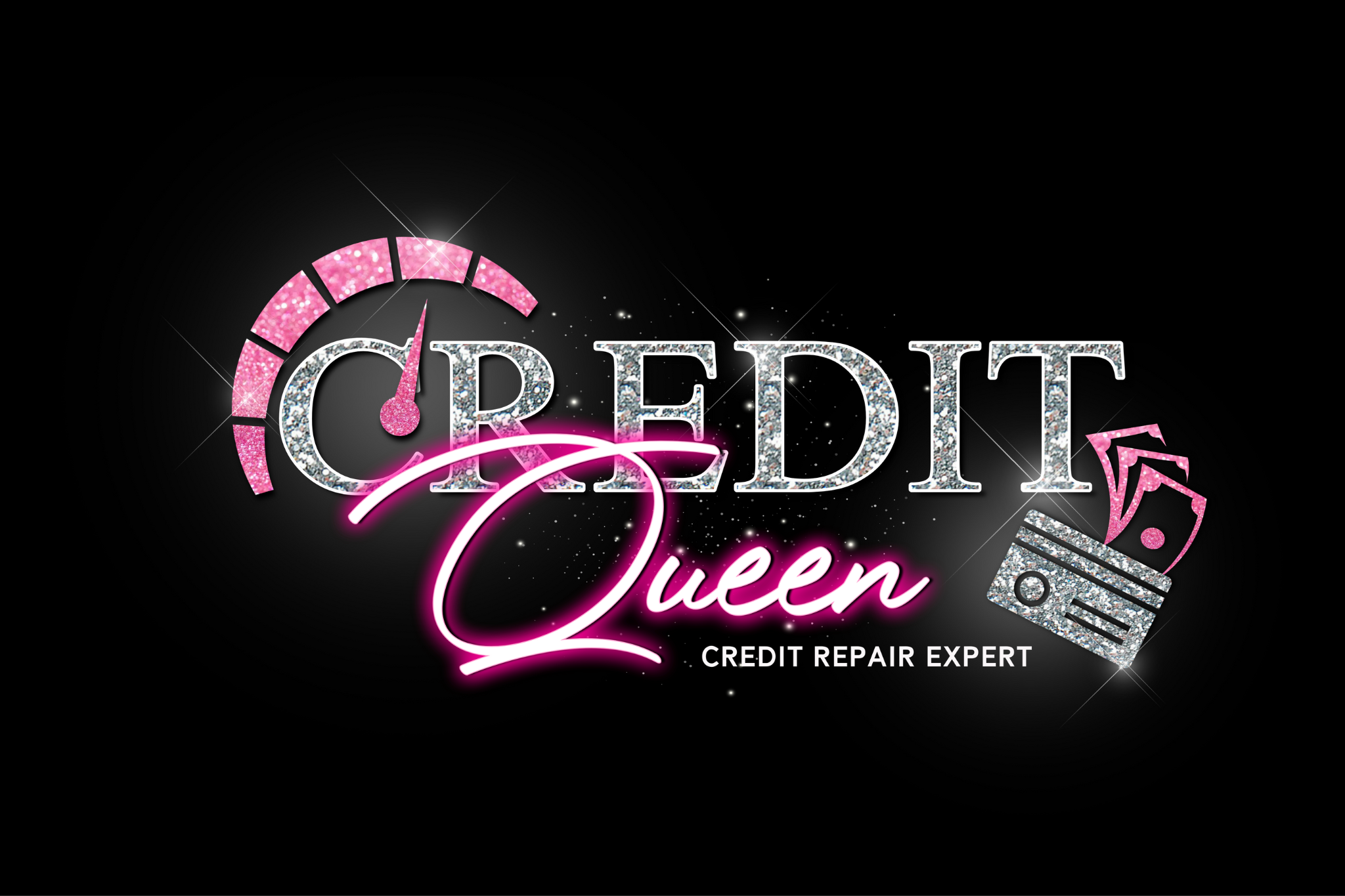Today, we’re diving headfirst into the intriguing world of credit cards, where myths and misunderstandings abound like mushrooms after a rainstorm. I’m your friendly credit expert, and together, we’ll peel back the layers of misconceptions, unravel the mysteries, and equip you with the knowledge you need to wield your plastic power wisely.
Myth #1: Credit Cards Are Free Money
Oh, the sweet allure of the plastic card that lets you buy now and pay later, right? Wrong! Credit cards aren’t magical money trees; they’re loans you must repay. When you carry a balance from month to month, interest charges come marching in like a conquering army. If you let them camp out for too long, they’ll make themselves home in your wallet, feasting on your hard-earned cash.
Solution: Pay your credit card balance in full every month. This way, you’ll avoid interest charges like a seasoned ninja.
Myth #2: Minimum Payments Are Enough
Imagine you’re at a buffet and decide to nibble on a single piece of broccoli. That’s what making the minimum payment on your credit card feels like. Sure, you’re technically paying, but it’s a mere drop in the ocean. The rest of your balance keeps accumulating interest.
Solution: Pay more than the minimum. If you can’t pay the entire balance, aim to at least double or triple the minimum. The more you pay, the faster you’ll slay that debt dragon.
Myth #3: Having Many Credit Cards Boosts Your Credit Score
Some think collecting credit cards is like gathering Pokémon – the more, the merrier! But hold on there, Ash Ketchum; having too many credit cards can hurt your credit score. Lenders may see it as a sign that you’re a risky borrower.
Solution: Maintain a reasonable number of credit cards and use them responsibly. A mix of credit types, like credit cards and loans, can benefit your score but don’t overdo it.
Myth #4: Closing a Credit Card Improves Your Credit Score
This myth is like closing a door and hoping your problems vanish. Closing a credit card can harm your credit score because it affects your credit utilization ratio—the amount of credit you use compared to your total credit limit.
Solution: Keep old credit card accounts open, especially if they have a good payment history. If you must close one, focus on the newest cards in your collection.
Myth #5: Carrying a Balance Improves Your Credit Score
This is like believing eating ice cream daily will help you lose weight – a delicious fantasy! Carrying a balance only fattens up your interest payments; it won’t make your credit score any healthier.
Solution: Pay off your credit card balance in full each month. Your credit score will thank you by soaring to new heights.
Myth #6: Credit Cards Are Only for Emergencies
Picture this: Your car breaks down, and you’re reaching for your trusty credit card. While credit cards can be a lifeline in emergencies, they’re not just for those desperate times. They’re versatile financial tools for everyday transactions.
Solution: Use your credit card wisely for both everyday expenses and emergencies. Just be sure to budget for those daily expenses so you can pay the balance in full.
Myth #7: All Credit Cards Are the Same
Thinking all credit cards are identical is like assuming all cars are the same because they have wheels and an engine. Credit cards come in various flavors, from basic no-annual-fee cards to premium cards with travel perks and cashback rewards.
Solution: Choose a credit card that suits your needs and spending habits. If you love to travel, a travel rewards card might be your best friend. A cashback card could be your wingman if you’re a budget-conscious shopper.
Myth #8: Interest Rates Are Fixed
Let’s debunk this myth faster than a magician can pull a rabbit from a hat. Credit card interest rates are typically variable, meaning they can change over time based on factors like the prime rate or your creditworthiness.
Solution: Keep an eye on your card’s terms and conditions. If you’re unhappy with the interest rate, consider transferring your balance to a card with a lower rate or negotiating with your current issuer.
Myth #9: Credit Cards Guarantee Approval
Imagine walking into your dream job interview and expecting to land the gig just because you showed up. Credit cards don’t work that way. Approval depends on various factors, such as your credit history, income, and creditworthiness.
Solution: Before applying, check your credit report and score. If your credit could be better, consider applying for a card that matches your credit profile to increase your chances of approval.
Myth #10: Cash Advances Are Like Regular Purchases
It’s tempting to think that cash advances are a different way to access your credit limit, but they’re a financial trap. Cash advances often come with higher interest rates, immediate interest accrual, and fees, making them much more expensive than regular purchases.
Solution: Avoid cash advances like the plague. If you’re in dire need of cash, explore other options like a personal loan or borrowing from friends or family.
Myth #11: Closing Old Credit Card Accounts Is Beneficial
Closing an old credit card account is like cutting down an ancient tree that provided shade for generations. It can shorten your credit history, a crucial factor in determining your credit score.
Solution: Keep those old accounts open to maintain a long credit history. You can use them sparingly to keep them active, even for small purchases.
Myth #12: Your Credit Card Is Always Protected
While credit card issuers have fraud protection measures, it’s not a foolproof shield. You must remain vigilant and review your statements for unauthorized charges.
Solution: Check your statements regularly and report any suspicious activity immediately. Most issuers have a zero-liability policy for unauthorized charges, but you must act promptly.
Myth #13: Having a High Credit Score Means You’re Financially Secure
A high credit score is like a trophy for good financial behavior, but it doesn’t tell the whole story. It reflects your credit history but doesn’t reveal your overall financial health.
Solution: Focus on improving your overall financial well-being by saving, investing, and managing debt wisely rather than chasing a high credit score for its own sake.
Myth #14: Introductory 0% APR Offers Are Entirely Interest-Free
Don’t be fooled by the siren call of 0% APR introductory offers. While they can be a lifesaver when transferring a balance or making a large purchase, they often have terms and conditions. For example, you might face a balance transfer fee, and the interest rate can skyrocket after the introductory period.
Solution: Read the fine print. Understand the terms and fees associated with these offers, and have a plan to pay off the balance before the introductory period ends.
Myth #15: Credit Cards Are Only for Young People
Believe it or not, credit cards are age-neutral! People of all ages can benefit from the financial flexibility and credit-building potential they offer.
Solution: If you’re a seasoned adult without a credit card, it’s never too late to start building credit responsibly. Consider a secured card to begin your journey.
Myth #16: Applying for Many Credit Cards in a Short Time Won’t Affect Your Credit
Applying for multiple credit cards in quick succession can send a red flag to lenders. It might make them wonder why you’re suddenly seeking so much credit and could lead to a temporary dip in your credit score.
Solution: Space out your credit card applications, especially if you’re planning a big financial move like buying a house or car in the near future.
Myth #17: Credit Card Companies Won’t Negotiate Terms
Credit card companies aren’t heartless robots; they’re open to negotiation in some cases. If you struggle with high-interest rates or fees, it’s worth reaching out and asking for a better deal.
Solution: Be polite and persistent. Explain your situation and ask for a lower interest rate, an annual fee waiver, or a reduced minimum payment.
Myth #18: All Credit Cards Charge Annual Fees
While many credit cards come with annual fees, plenty of them don’t. It all depends on the type of card and the perks it offers.
Solution: Explore credit cards with no annual charges to avoid annual fees. Just remember that some cards with fees might offer rewards and benefits that outweigh the cost.
Myth #19: You Can’t Dispute Credit Card Charges
Picture this: You open your credit card statement, and there it is—a mysterious charge for a unicorn grooming service you never ordered. Don’t despair; you have the right to dispute unauthorized or incorrect charges.
Solution: Contact your credit card issuer immediately to initiate a dispute. They’ll investigate the charge and remove it from your bill if it’s erroneous or unauthorized.
Myth #20: Credit Cards Are Like a “Get Out of Jail Free” Card
If only life were as simple as a game of Monopoly! Credit cards won’t magically erase your financial troubles. In fact, using them recklessly can land you in a financial pit that’s tougher to climb out of than a well-dug foxhole.
Solution: Approach credit cards with the respect they deserve. Treat them as a tool for managing your finances, not a magical escape hatch.
Myth #21: Your Credit Limit Is Your Spending Limit
It’s easy to think that your credit limit is an invitation to spend as much as you want. However, exceeding your credit limit can lead to over-limit fees, higher interest rates, and damage to your credit score.
Solution: Keep your credit utilization ratio (credit used versus credit available) below 30%. For example, if your credit limit is $1,000, try not to carry a balance over $300.
Myth #22: Credit Cards Are a Last Resort for Those With Poor Credit
Credit cards are not exclusive to people with perfect credit scores. There are options designed specifically for those looking to rebuild their credit.
Solution: Look into secured credit cards. These require a deposit as collateral, making them accessible to individuals with less-than-stellar credit histories. Responsible use can help improve your credit over time.
Myth #23: Credit Card Rewards Are Always Worth It
While credit card rewards can be enticing, they’re only valuable if they align with your spending habits and financial goals. Earning points or miles on purchases you wouldn’t otherwise make can lead to overspending.
Solution: Choose rewards cards that match your lifestyle and spending patterns. A travel rewards card might not be the best fit if you’re not a frequent traveler. Opt for cashback or other rewards that align with your needs.
Myth #24: Credit Card Offers Are Too Good to Be True
Some consumers are skeptical of credit card offers, thinking they must be scams because they seem too good to be true. While there are scams out there, legitimate credit card offers can provide valuable benefits.
Solution: Research offers from reputable issuers. Read the terms and conditions carefully to understand the benefits and potential costs.
Myth #25: You Can Only Have One Credit Card
While some people prefer a minimalist approach to credit cards, there’s no strict limit on how many you can have. The key is responsible management.
Solution: Assess your financial needs and spending habits. If having multiple cards helps you optimize rewards and manage expenses, go for it. Just remember, each card comes with its own responsibilities.
Additional Tips and Strategies
Now that we’ve tackled these 25 common credit card myths, here are some additional tips and strategies to help you master the art of credit card management:
1. Set a Budget
Before swiping your credit card, have a budget in place. Knowing how much you can afford to spend and sticking to it is fundamental to responsible credit card use.
2. Monitor Your Statements
Regularly review your credit card statements for accuracy and unauthorized charges. This habit can help you spot errors or fraudulent activity early.
3. Automate Payments
Consider setting up automatic payments for at least the minimum amount due each month. This way, you’ll avoid late fees and missed payments.
4. Pay More Than the Minimum
Pay more than the minimum payment whenever possible to reduce your balance faster and save on interest.
5. Use Credit Wisely
Remember that credit cards are tools, not toys. Use them wisely to build your credit, take advantage of rewards, and manage your finances efficiently.
6. Don’t Max Out Your Credit Limit
Keeping your credit utilization ratio low is crucial for maintaining a healthy credit score. Avoid maxing out your credit card.
7. Shop for Low APR
If you tend to carry a balance, consider credit cards with low annual percentage rates (APRs) to minimize interest charges.
8. Build an Emergency Fund
There are better strategies than relying on credit cards for emergencies. Aim to build an emergency fund to cover unexpected expenses without going into debt.
10. Use Credit Card Alerts
Many issuers offer text or email alerts for transactions, due dates, and account balances. Take advantage of these to stay on top of your card activity.
11. Consider a Balance Transfer
Explore balance transfer offers with lower or 0% APR if you have high-interest credit card debt. Just be aware of any transfer fees and the duration of the promotional rate.
Conclusion: Mastering Your Plastic Power
Congratulations, you’ve successfully debunked 25 credit card myths and acquired a wealth of knowledge on wielding your plastic power responsibly! Remember, credit cards can be valuable financial tools when used wisely.
Now, it’s your turn to put this knowledge into action. Start by reviewing your current credit card habits, looking for areas where you can improve. Set financial goals, create a budget, and choose the right credit cards to align with your needs and lifestyle.
By staying informed and making responsible choices, you can harness the benefits of credit cards while avoiding the pitfalls. So, use your plastic power wisely, and build a brighter financial future!
Call to Action: Take the first step in mastering your credit cards today! Review your credit card statements, create a budget, and explore credit card options that suit your financial goals. Share this article with friends and family to help them debunk these credit card myths and build a stronger credit profile.
Now that we’ve demystified these credit card myths, you’re armed with the knowledge to wield your plastic power wisely. Credit cards can be powerful financial tools, but they come with responsibilities. By using them wisely and debunking these common misconceptions, you’ll confidently navigate the world of credit.
So, what’s your next move? Will you continue to let these myths hold you back, or will you take control of your financial destiny?
The choice is yours. Make it wisely, and may your credit score be in your favor!
Yup, you guessed it. Sometimes I throw in those magical affiliate links that can whisk you away to credit utopia. But wait, there’s more! Each time you click on one of these bad boys and decide to snag a deal, a tiny trumpet-playing squirrel delivers a small bag of gold coins to our castle. In other words, I might earn a little something-something. Just know that I would never use a link that I don’t personally use myself and/or highly recommend.
About the Author
Meet Ashley Effinger, the Credit Queen and FreedomPath Advisor! Digital marketing royalty, I’m all about conversions and changing lives! By day, I improve credit scores, learn budgeting tricks, and build lasting wealth with my guidance. By night, I’m a rockstar wife and a supermom of 5 amazing kiddos! When not slaying credit myths, I indulge in my passions: reading, jet-setting, and sipping smoothies! Follow me for credit tips and a dose of laughter!














